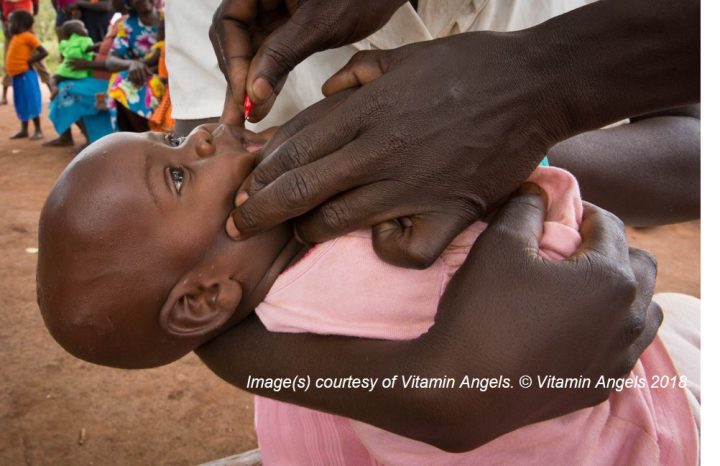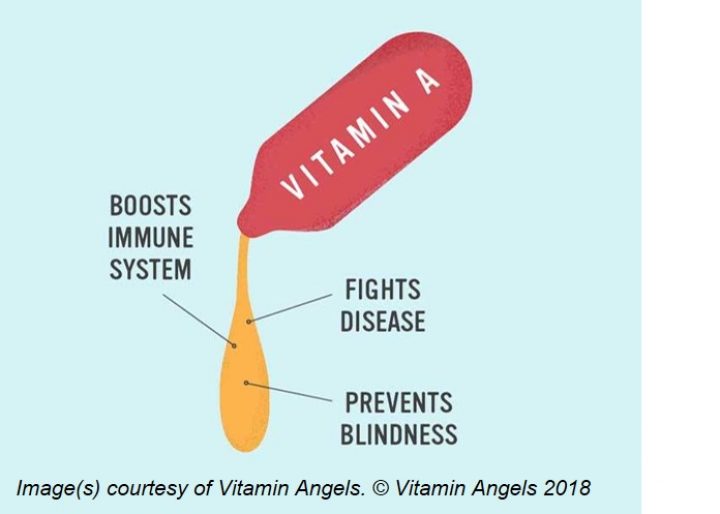
The World Health Organization (WHO) states that Vitamin A is essential for the functioning of the immune system and the healthy growth and development of children, and is usually acquired through a healthy diet. However, it is estimated that, globally, 190 million children under five years of age are affected by vitamin A deficiency. These children suffer an increased risk of visual impairment (night blindness), illness and death from childhood infections such as measles and those causing diarrhoea.
WHO strongly recommends the provision of vitamin A supplements every four to six months is an inexpensive, quick, and effective way to improve vitamin A status and reduce child morbidity and mortality in the long term. In areas where vitamin A deficiency is a public health problem, routine vitamin A supplementation is recommended in infants and children 6-59 months of age as a public health intervention, and has been shown to reduce the risk of all-cause mortality by 24%. Comprehensive control of vitamin A deficiency should include strategies for dietary improvement and food fortification as well.

THE IMPACT

